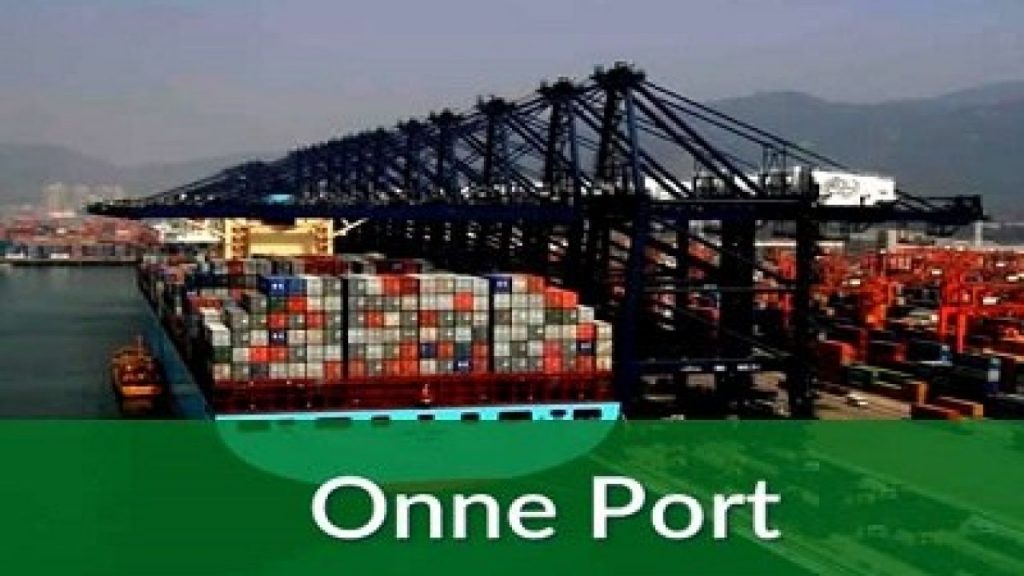By Akanimo Sampson
Stakeholders at Onne Port in Rivers State say it is far easier for a camel to pass through the eye of a needle than for businesses to operate at the port.
They are blaming it all on lack of scanners at the port which they say, is negatively affecting Nigeria’s economy.
According to them, that is largely responsible for the slowdown of business at the port.
They made this known at a meeting with the Comptroller, Customs Area11 Command, Aliyu Galadima Saidu, last week.
Generally, the stakeholders comprise the Association of Nigeria Licensed Customs Agents, (ANLCA) National Association of Government-Approved Freight Forwarders (NAGAFF), West African Container Terminal, Limited (WACT), Integrated Logistics Services I (NTELS), Dockworkers, among others.
“There is no developed nation or any nation that wants to develop in the maritime industry that operates without scanners,’’ says the stakeholders, regretting that such is prevalent in Nigeria.
ANLCA Secretary, Chinedu Ikenga, says to achieve effective service delivery and meet the revenue targets of the port, “modern facilities in the maritime business must be put in place”.
Galadima, the Onne Customs Comptroller, however, announced that the command is poised to exceed the N140.2 billion revenue target given to it by the Federal Government for this 2020.
The command, he pointed out, generated over N107.3 billion revenue last year and surpassed the annual target of N95.7 billion with the sum of N11.6 billion which represents 112 percent of the annual target.
“Area II command Onne port was given a revenue target of N140.2 billion for the year 2020. We are not only optimistic about meeting the target but we hope to surpass it through hard work, honesty and dedication to work,” says Galadima.
On the scanner challenge, he admits that scanners make jobs easier and vessel turnaround time faster, noting that it is the government that procures scanners and releases to customs for use.
“Scanner is not something you just buy from the market. You place an order and after that, it takes about three years for you to get it.
“Onne is very strategic and because of that, it is one of the governments of the port has directed that three scanners be ordered to be released to.
“So, as soon as the scanner is made available, our operations will improve”, the customs chief assures.
But the ANLCA scribe in a quick reaction says it’s over five years, they have been hearing similar assurances with no result.
“About a decade ago, the government introduced scan machines in the three major ports in the country- Lagos, Apapa and Onne.
“The scanners worked for about two years and shut down and till date, I cannot pinpoint exactly why the scanners are no longer in use”
“Considering the type of cargos importers bring into Onne port, there are needs for scanners because without it, businesses are dying here and it is impacting negatively on the nation’s economy. Cargoes now stay more than three to five days at the port due to a lack of scanners.
“If scanners are in use, in a day, over 200 containers would be scanned but when scanners are not in use, WACT would have serious difficulties in examining one container and also spend days examining two or more”.
He reiterates that any country that wants to develop in the maritime industry operates with modern facilities like scanners.
Vice-Chairman of the Council for Regulations of Freight Forwarders, Henry Njoku, while also speaking says without scanners, works will not be done effectively, and revenue target might not be achieved.
“We have remained like this for long and it has not been giving us the results we expected and we cannot continue like this, therefore, we urged the government to immediately release scanners to Onne port.”
The absence of scanners was a burning issue last year when the House of Representatives Committee on why Eastern ports are not being put to maximum use, visited Onne Ports.

